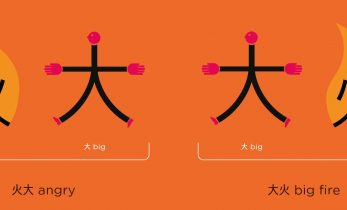Greater than 6 minutes, my friend!
How “The Translation Industry” Is Killing Our Profession – As Well As Itself – Without Really Giving a Damn About It
As an old timer who has been working as a freelance translator for almost three decades, in fact 36 years if I include my experience as an in-house translator in Europe and Japan, I have seen a lot of changes in what used to be called “a profession” and what is now called by many people, including translators, “the translation industry” (as if there were no difference between the two).
Change is inevitable in any profession; indeed, change is the only permanent constant that can possibly exist in human life. One thing is for sure: there will be no more changes in our life when we are finally dead.
Things can change for better or worse for the recipients of these changes and they usually fluctuate in both directions. But the trends that I see developing in “the translation industry” are more than just mere changes. In my mind, they evoke the image of a death spiral that is looming not only for the translation profession, but ultimately also for a large segment of “the translation industry”.
On the one hand, it would seem incomprehensible that a profession of highly educated and experienced knowledge workers, including translators—which used to guarantee a fairly comfortable middle class existence to this translator for more than three decades—could slip within a period of only about a decade to the current status quo.
On the other hand, what we are seeing in “the translation industry” is a mirror image of what is occurring in the corporate world in many other professions and countries. Newspapers are full of reports describing how in various other professions highly qualified human labor is either being replaced by machines, or outsourced to developing countries to maximize profits, including the legal profession, medical profession, accountants, and other professions.
The same trends are also dramatically manifested in the corporate “translation industry”.
The current business model of corporate translation agencies does not have much use for professional translators because it can’t really afford to pay them wages commensurate with their education, experience and expertise. The current business model of uberized corporate translation agencies cannot afford to work with professional translators because uberification naturally values profits über alles (German for “above all”).
It’s not personal to the translation agency owners and CEOs of uberized enterprises, it’s business.
The modern corporate translation agency model is based mostly on the concept of an owner or owners who own a business in which easily replaceable workers, who are essentially assembly line workers, perform functions that can be broken down into repetitive operations to achieve maximum profits for the owner or owners of an enterprise. The profits are not shared equitably with workers who are seen as mere assembly line drones because maximum profit can only be achieved when workers who do the actual work are paid as little as possible.
This concept is compatible with an assembly line for production of shirts, shoes or hamburgers where most of the work is done by machines and humans perform assisting and supervising roles. But the concept is not compatible with a working environment created for intellectual activities of highly educated and experienced knowledge workers such as accountants, writers, or translators, who in fact are the only professionals who ultimately are able to translate highly complicated texts, such as articles from technical and medical journals, or patent applications from or into foreign languages.
Notwithstanding the deafening noise that “the translation industry” is making about wonderful, revolutionary, disruptive “language technology” tools, by which is meant mostly machine translation and other computer tools, language technology provides tools that are very useful, but that can be used only by translators.
A customer relying on machine pseudo-translation is relying on a mountain of mistranslations. A customer relying on machine pseudo-translation that is additionally “post-edited”—by humans who are again treated as mere appendages of “smart machines” and considered and reimbursed accordingly—is relying on aggregated, butchered segments that will likely have fewer glaring mistranslations, but that will contain a lot of mistranslations nevertheless. The fact that the original spirit of the message is always killed by machine translation is not even debatable. The meaning of the sentences is also usually murdered by a non-thinking, non-feeling machine, unless the sentence is reconstructed, which is to say retranslated by the underpaid human appendage to the machine.
And yet, the three most prominent trends in the uberized corporate “translation industry” are:
- Reliance on machine translation,
- Reliance on post-processed machine translation,
- Reliance on “translators” who may be translating words supplied to them by an uberized translation agency while pecking on a cell phone keyboard, for example while sitting on a bathroom throne.
The third characteristic of the uberized “translation industry” that I list above is in fact taken from an article describing a new business of a young Korean entrepreneur, in which human “translators” are described exactly in this manner, while the article is celebrating the indomitable, innovative spirit of this young translation industry entrepreneur.
The translation industry is killing itself, seemingly without realizing what it is doing not only to real translators, but also to itself, or giving a damn about it.
The only way out of this death spiral for actual translators—university educated professionals who have years or decades of experience and expertise in specialized fields of human knowledge—is to make it clear to our customers that we, translators, are not a part of this “translation industry”.
We may or may not be using computer tools such as CATs (computer-assisted tools) or machine translations, but we use these tools for our own purposes. We must not allow other people, i.e. “the translation industry”, to control translators with these tools and use them against us.
We are not human post-processors of machine translation detritus for one cent a word, or possibly half a cent a word, or possibly less than that. Some pitiful human beings may be doing that, and our hearts go out to them, but human beings though they may be, translators they are not.
We do not translate while pecking away on a cell phone keyboard sitting on the bathroom commode (although some of us may be checking e-mails or Facebook or Twitter messages in this manner). Some other, pathetic human beings, because they still are that, may be attempting to translate in this manner to please “the translation industry”. This business model will go down in flames once all of the initial investors’ money has been spent.
We, human translators, are not “translation industry” slaves. We are the alternative to “the translation industry”.
And as long as we can survive the onslaught of greedy merchants who are attempting to replace human intellect by silicon brains using algorithms, assisted by unfortunate, pitiful human slaves, and as long as we refuse to become a part of “the translation industry”, our customers will have a choice between the translations provided by “the translation industry”, and translations provided by university educated human translators who have many years of experience and expertise in highly specialized translation fields.
There are markets for what “the translation industry” is selling, because some customers simply do not care that much that what they are being sold as translations is a mountain of mistranslations, as long as the translation service is really, really cheap, while ignoring the old adage that cheap things ultimately turn out to be very expensive.
And then there is also a market for real translation provided by specialized translators and specialized translation agencies who actually know what they are doing; unfortunately, not a common occurrence in the current version of the uberized “translation industry”.
And regardless of for what purpose translations are used by translation customers, we hope that most of them realize that few things may ultimately turn out to be more expensive than the cheap, machine-translated, human post-processed misinformation that is currently produced in copious amounts and labeled as translations by “the translation industry”.
The challenge for translators is to figure out how to connect with customers outside of “the translation industry”. Incidentally, translators’ associations are now facing the same decision – will they actively work for translators whom they are purporting to represent, or will they instead prefer to work for “the translation industry” by actively working against the interests of translators. Some are clearly doing the former, and some the latter.
The way I see it, the only way to escape the death spiral that “the translation industry” is persistently and untiringly creating for us and itself is to provide a valid, independent alternative to what is going on in “the translation industry”.
Unless we are able to provide such an alternative, our profession may soon be history.






“Unless we are able to provide such an alternative, our profession may soon be history” – this!
The reason why “translation industry” dominates the market is simply because we (university educated human translators who have many years of experience and expertise in highly specialized translation fields) cannot provide an alternative.
“Translation industry” is smart, they have an insane amount of money and resources, they employ great engineers and designers (and I suppose they pay them very well as apposed to expendable translators). And those engineers develop products and services that are easy to use, and easy to sell to the end client.
And I’m sure there are clients who’d love to work with university educated human translators who have many years of experience and expertise in highly specialized translation fields instead of the “translation industry”, but how do they find them?
The majority of university educated human translators who have many years of experience and expertise in highly specialized translation fields either don’t have a website and/or office or have a website that is soooooooo outdated that customers would rather choose “translation industry” because their engineers and designers made sure it looks modern and works well.
I’m new to this profession but I feel like educated human translators who have many years of experience and expertise in highly specialized translation fields have been living under the rock for a very long time, allowing “translation industry” to score one win after another. I don’t know why it has happened. My guess it’s either fear or selfishness or both.
“Translation industry” is scary. It has the power. It has the resources. Building the alternative would require an insane investment on our side. The way I see it there are only 2 ways to build in alternative: either we invest in ourselves by opening specialized translation agencies (which is a very scary step and only a few translators will have the guts to go through with it) OR we can join our forces and build an alternative to the “translation industry”.
I don’t know if I ever have the energy and courage to go with option 1 for my business, but I already started something close to option 2 by building The Open Mic. I don’t know if we ever be able to defeat the “translation industry”, but I still have hope that we can turn things around and articles like this give me hope that not everything is lost.
“The majority of university educated human translators who have many years of experience and expertise in highly specialized translation fields either don’t have a website and/or office or have a website that is soooooooo outdated that customers would rather choose “translation industry” because their engineers and designers made sure it looks modern and works well.”
You are talking about my website, right, Dmitry? If so, you are right because it is sooooh 19th century, although it is still functional. But I am aware of it, and I am planning on starting the hunt for a redesign artist when I come back from Prague on the 20th.
But it’s not true that you need a lot of money to have a website that can compete well with “the translation industry”.
I have been able to do that with my modest website for more than a decade and it only costs me a few hundred dollars a year.
What you need is:
1. A good domain name 2. Good, relevant content of your website 3. Supporting relevant activities such as your mic, or my blog, etc., that will bring your ranking on par with what “the translation industry” can achieve with a lot of money spent on Internet advertising.
It has not been working that great for me so far this year, but I think the main reason for that is the dated appearance of my site, just like you said.
Hi Steve,
I hope I didn’t come across as rude, but yes, you website could use some refurbishing same applies to my personal website too (especially on the copywriting and call to action part).
I agree completely that you can easily compete on Google without spending thousands of dollars on ads and you pointed out all major ingredients: good domain name and relevant content written in human language that people actually give a damn about. Your blog is a great example of great content.
Personally I think a website is a digital equivalent of an office. And since our world is becoming more and more digital having a great looking and well-functioning digital office is important.
I also find it appalling that so many translators still use free email domains such us gmail or yahoo. Those email addresses normally associate with spam and can easily land into a spam box.
I think in the modern world having a website is essential if you want other people to take your business seriously. I just don’t understand why only a few translators actually have websites? Of 1300+ translators registered on The Open Mic only 5% have personal websites. I think that’s a problem.
If we want to compete with the “translation industry” then we really need to step up our game both offline and online. A personal website is probably the most efficient way to attract direct clients or premium agency clients.
Yes, maintaining a website, creating content and targeted landing pages for your ideal clients takes a lot of time and effort, but it’s not rocket science. I think it’s way better to be proactive rather than just sit and wait till the next once a life-time opportunity magically lands into your inbox.
I am in complete agreement with what you said.
Only 5% of translators have website, and probably 95% of them waste time bitching about agencies instead of trying to figure out how to connect with direct clients.
Hi Steve and to all colleagues.
There are tools that will kill our profession, tools like SmartCAT, that is an online platform that offers not only job to translators, but also the online tool for translation. They keep the translation memory for the future translations, as to better the quality, at least they say that this is the purpose of it, but of course we know for what purposes they made it. The intention is to acquire a translation/data base and then use it to sell to google or someone else or to made them-self a machine substitute to people and then, as the next inevitable step, they will not need us anymore. Is it inevitable? Not. When an agency asked me to do it, I refused to work on this platform. And this should do all of us. We should “fight” against this “evolution” and “progress”, because it is not an evolution or progress, it is a decrease that will kill millions jobs.
My opinion is to create a blog/site and to send a link to it to all translators (forums, etc.), where the translators could be informed about the danger of this “progress” and to make a signature campaign against such tools (including against google.translator) and clever steps/measures of big agencies/companies.
And professionals will avoid using such tools, frustrating the intention of agencies, at least for some time.
What do you think?
Hey Iurie!
Interesting thought. Why are you so convinced they will sell it? I mean, that’s a direct violation of their own terms of service and it will result in lawsuits and jail time, right? Why would they want to do it?